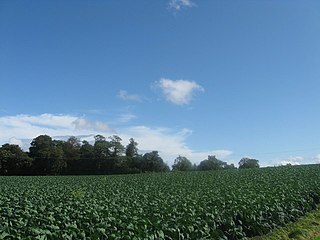
United States appellate procedure involves the rules and regulations for filing appeals in state courts and federal courts. The nature of an appeal can vary greatly depending on the type of case and the rules of the court in the jurisdiction where the case was prosecuted. There are many types of standard of review for appeals, such as de novo and abuse of discretion. However, most appeals begin when a party files a petition for review to a higher court for the purpose of overturning the lower court's decision.
A precedent is a principle or rule established in a previous legal case that is either binding on or persuasive without going to courts for a court or other tribunal when deciding subsequent cases with similar issues or facts. Common-law legal systems place great value on deciding cases according to consistent principled rules, so that similar facts will yield similar and predictable outcomes, and observance of precedent is the mechanism by which that goal is attained. The principle by which judges are bound to precedents is known as stare decisis. Common-law precedent is a third kind of law, on equal footing with statutory law and subordinate legislation in UK parlance – or regulatory law.
A brief is a written legal document used in various legal adversarial systems that is presented to a court arguing why one party to a particular case should prevail.
The writ of coram nobis is a legal order allowing a court to correct its original judgment upon discovery of a fundamental error that did not appear in the records of the original judgment's proceedings and would have prevented the judgment from being pronounced. The term "coram nobis" is Latin for "before us" and the meaning of its full form, quae coram nobis resident, is "which [things] remain in our presence". The writ of coram nobis originated in the courts of common law in the English legal system during the sixteenth century.
United States v. Booker, 543 U.S. 220 (2005), is a United States Supreme Court decision on criminal sentencing. The Court ruled that the Sixth Amendment right to jury trial requires that other than a prior conviction, only facts admitted by a defendant or proved beyond a reasonable doubt to a jury may be used to calculate a sentence exceeding the prescribed statutory maximum sentence, whether the defendant has pleaded guilty or been convicted at trial. The maximum sentence that a judge may impose is based upon the facts admitted by the defendant or proved to a jury beyond a reasonable doubt.

The Court of Appeal of Singapore is the nation's highest court and court of final appeal. It is the upper division of the Supreme Court of Singapore, the lower being the High Court. The Court of Appeal consists of the chief justice, who is the president of the Court, and the Judges of Appeal. The chief justice may ask judges of the High Court to sit as members of the Court of Appeal to hear particular cases. The seat of the Court of Appeal is the Supreme Court Building.

Canadian administrative law is the body of law that addresses the actions and operations of governments and governmental agencies in Canada. That is, the law concerns the manner in which courts can review the decisions of administrative decision makers such as a board, tribunal, commission, agency or Crown minister, when he or she exercises ministerial discretion.
Cunningham v. California, 549 U.S. 270 (2007), held that the rule first announced in Apprendi v. New Jersey, 530 U.S. 466 (2000), applies to California's Determinate Sentencing Law. In California, a judge may choose one of three sentences for a crime—a low, middle, or high term. There must exist specific aggravating factors about the crime before a judge may impose the high term. Under the Apprendi rule, as explained in Blakely v. Washington, 542 U.S. 296 (2004), any fact that increases the punishment above that which the judge may impose without that fact must be found by a jury beyond a reasonable doubt. In People v. Black, the California Supreme Court rejected the argument that under Blakely, the jury must find the additional facts necessary for the judge to impose the high term under the DSL. In Cunningham, the U.S. Supreme Court overruled Black, ruling that Blakely applies to California's determinate sentencing scheme.

George Mitchell (Chesterhall) Ltd v Finney Lock Seeds Ltd [1982] EWCA Civ 5 and [1983] 2 AC 803 is a case concerning the sale of goods and exclusion clauses. It was decided under the Unfair Contract Terms Act 1977 and the Sale of Goods Act 1979.
Greenlaw v. United States, 554 U.S. 237 (2008), was a United States Supreme Court case in which the Court held that a federal appeals court may not sua sponte increase a defendant's sentence unless the government first files a notice of appeal.

Errors as to precedent facts, sometimes called jurisdictional facts, in Singapore administrative law are errors committed by public authorities concerning facts that must objectively exist or not exist before the authorities have the power to take actions or make decisions under legislation. If an error concerning a precedent fact is made, the statutory power has not been exercised lawfully and may be quashed by the High Court if judicial review is applied for by an aggrieved person. The willingness of the Court to review such errors of fact is an exception to the general rule that the Court only reviews errors of law.

Administrative law in Singapore is a branch of public law that is concerned with the control of governmental powers as exercised through its various administrative agencies. Administrative law requires administrators – ministers, civil servants and public authorities – to act fairly, reasonably and in accordance with the law. Singapore administrative law is largely based on English administrative law, which the nation inherited at independence in 1965.

Illegality is one of the three broad headings of judicial review of administrative action in Singapore, the others being irrationality and procedural impropriety. To avoid acting illegally, an administrative body or public authority must correctly understand the law regulating its power to act and to make decisions, and give effect to it.

Gronow v Gronow, was a decision of the High Court of Australia.

New South Wales v Commonwealth, commonly known as the Wheat case, or more recently as the Inter-State Commission case, is a landmark Australian judgment of the High Court made in 1915 regarding judicial separation of power. It was also a leading case on the freedom of interstate trade and commerce that is guaranteed by section 92 of the Constitution.

Fox v Percy is a decision of the High Court of Australia.

Cranssen v the King is a decision of the High Court of Australia.

Farah Constructions v Say-Dee Pty Ltd, also known as Farah, is a decision of the High Court of Australia. The case was influential in developing Australian legal doctrines relating to equity, property, unjust enrichment, and constructive trusts, as well as the doctrine of precedent as it applies in Australia.

Dinsdale v R is an Australian legal case decided in the High Court.

Craig v South Australia is a decision of the High Court of Australia.







